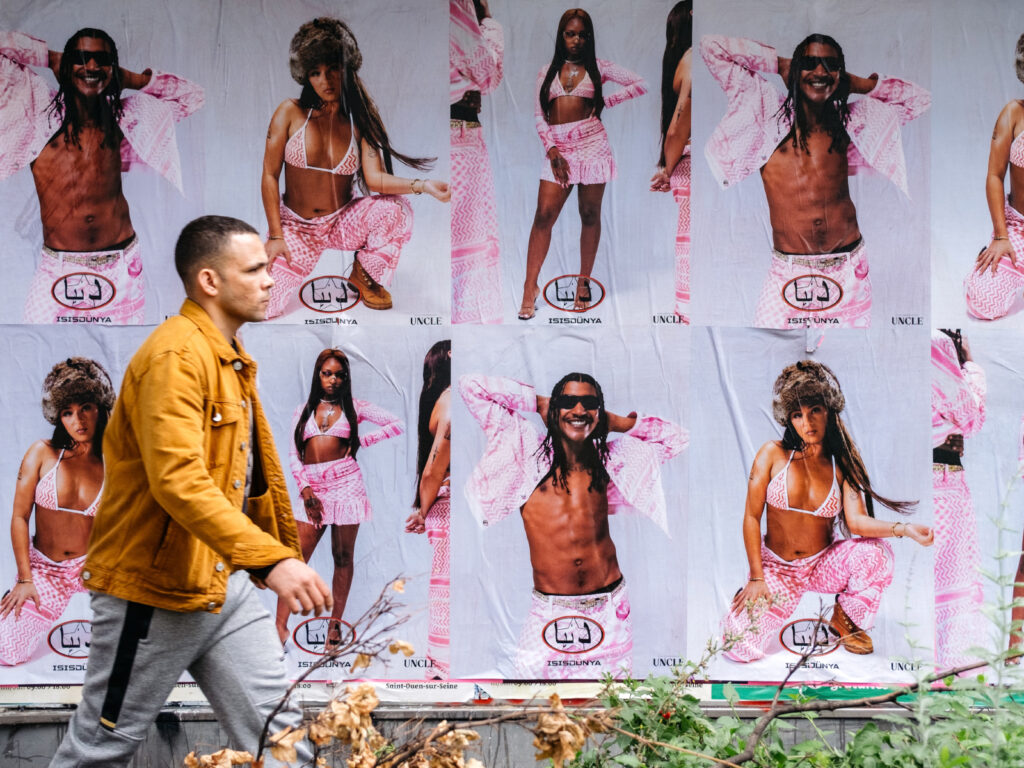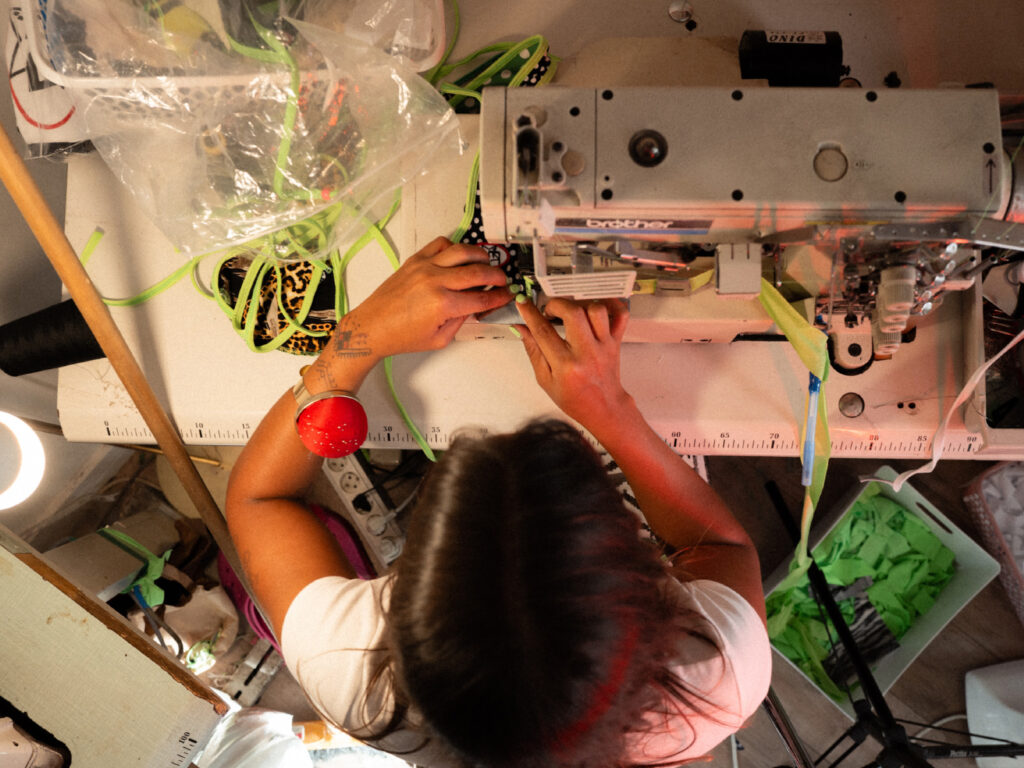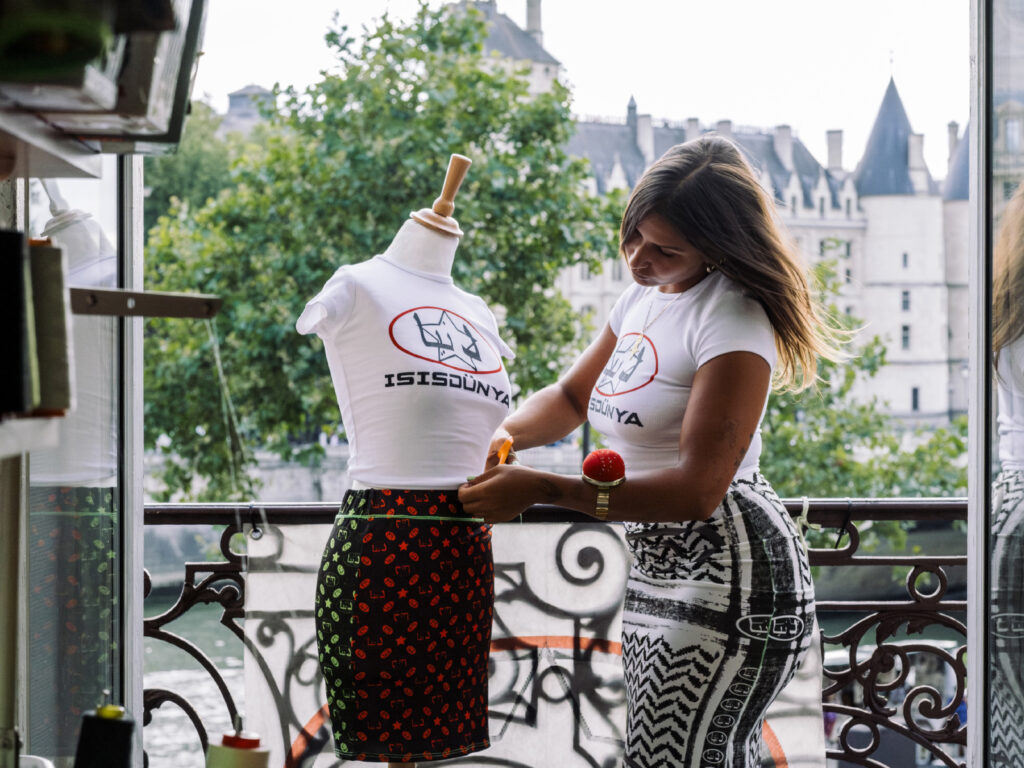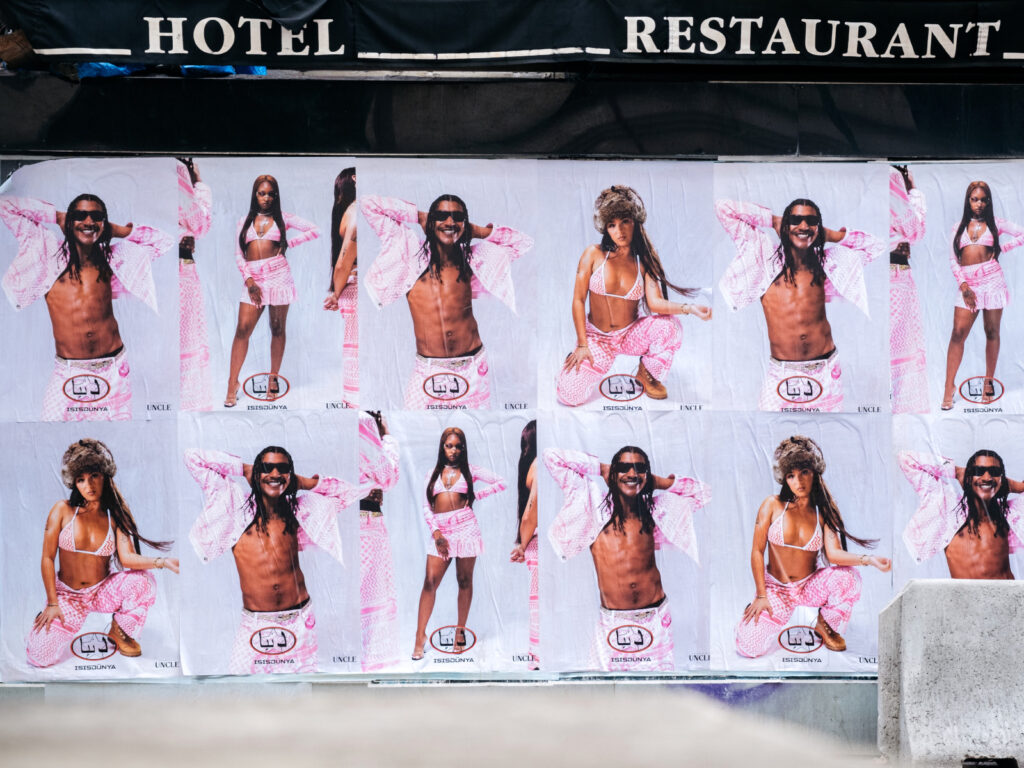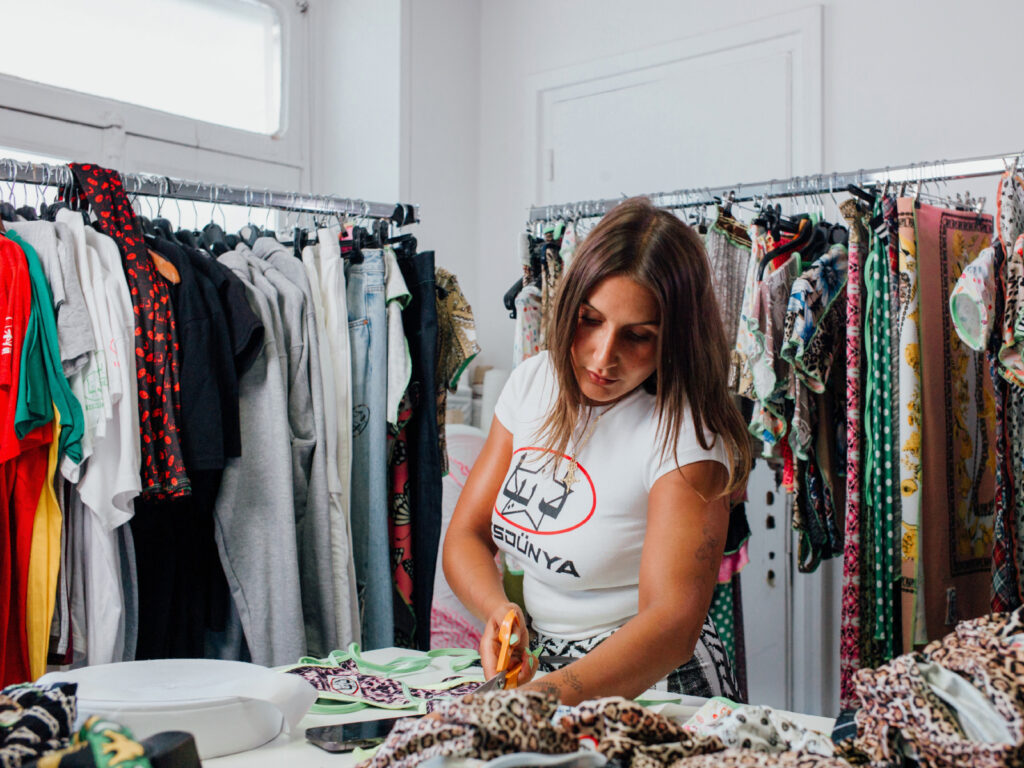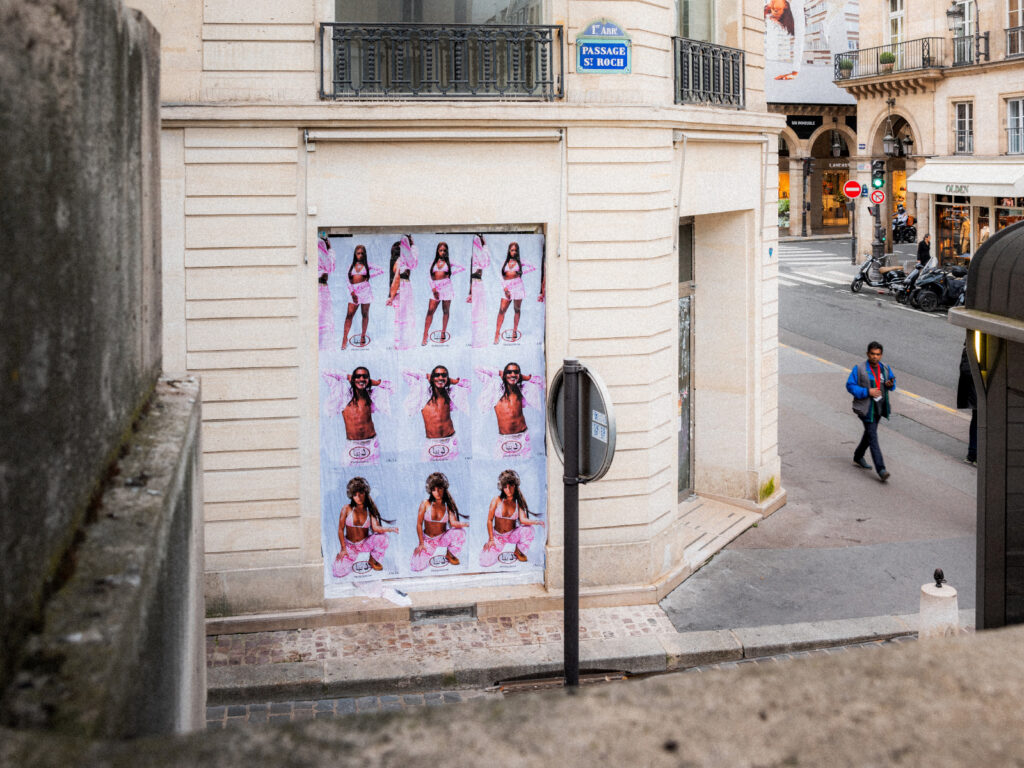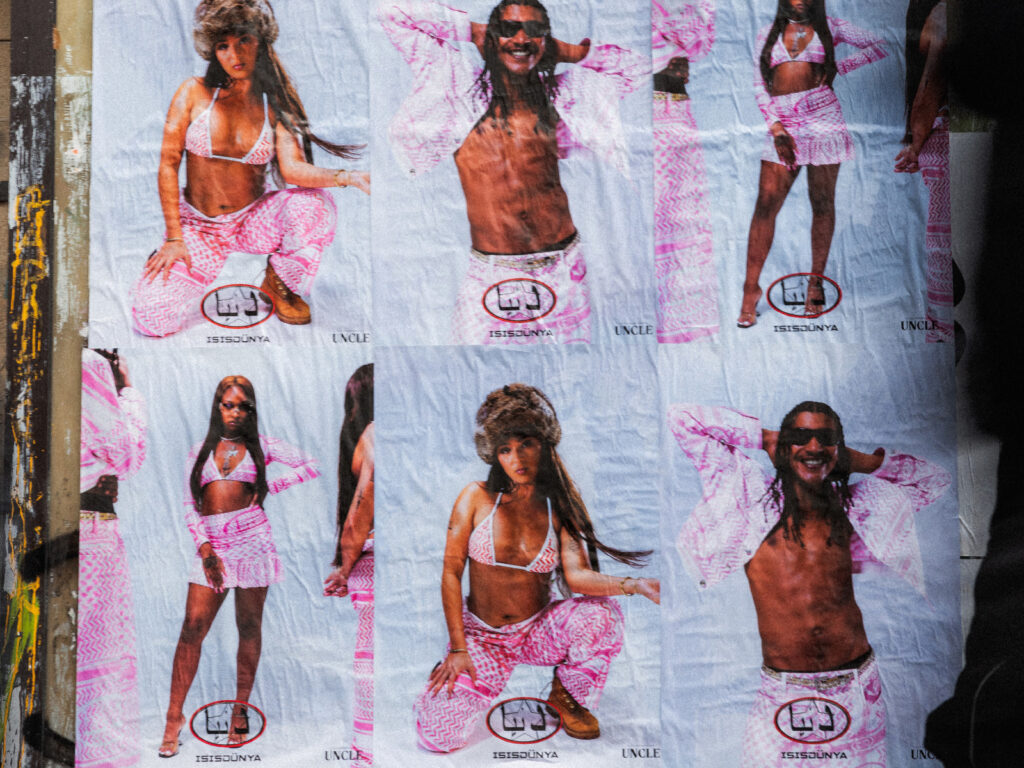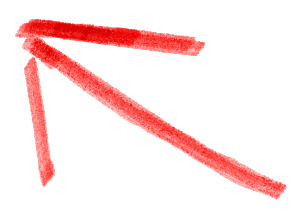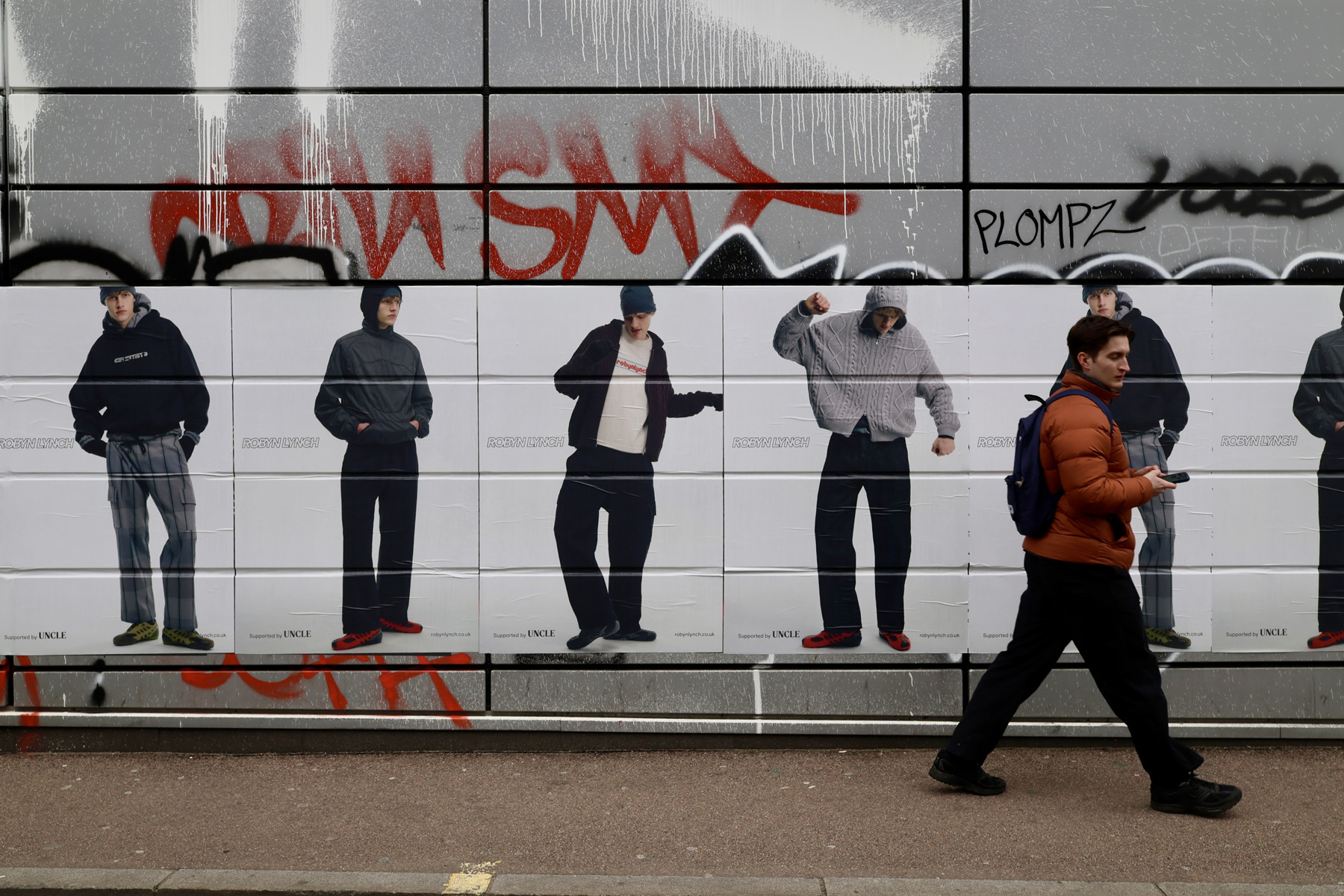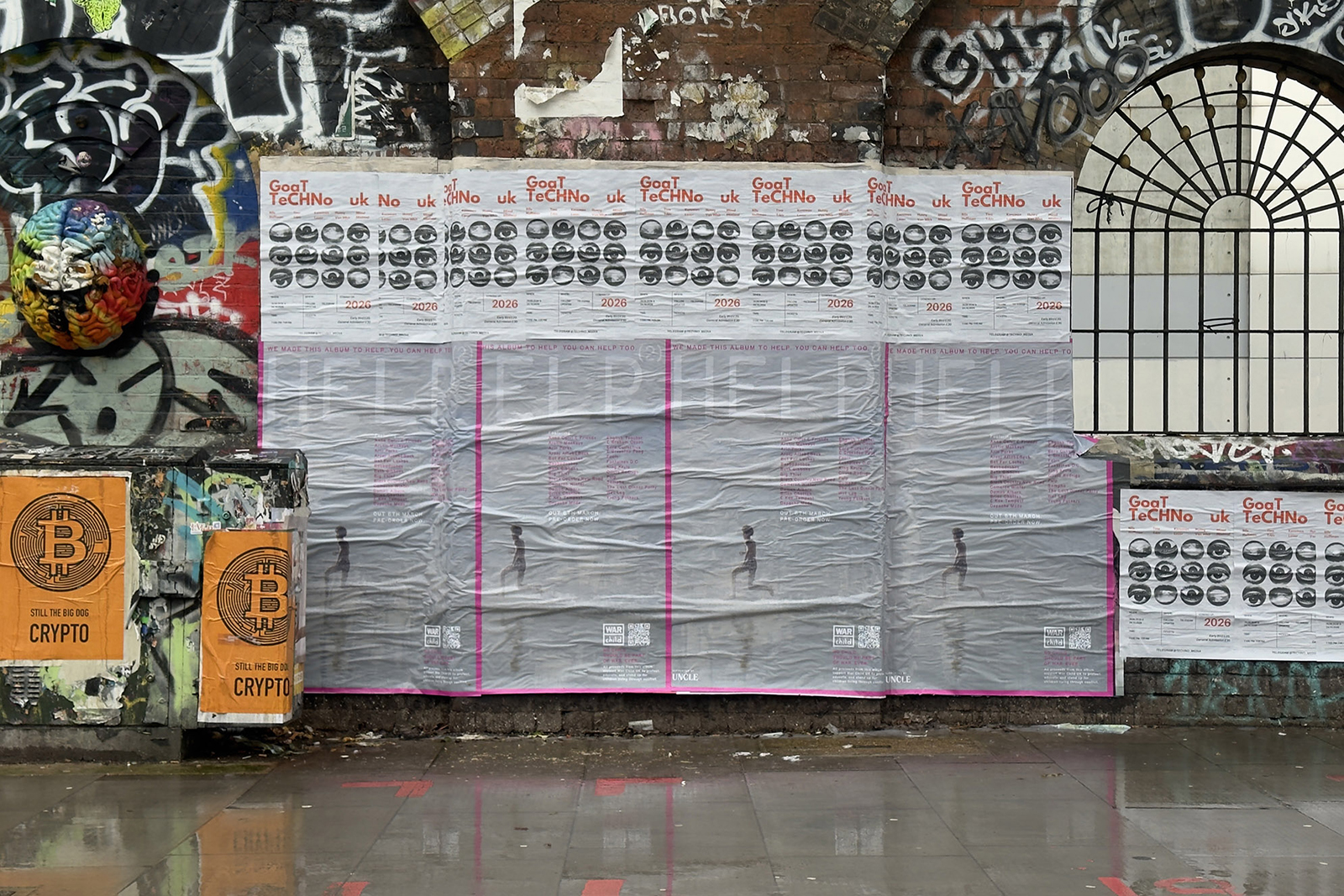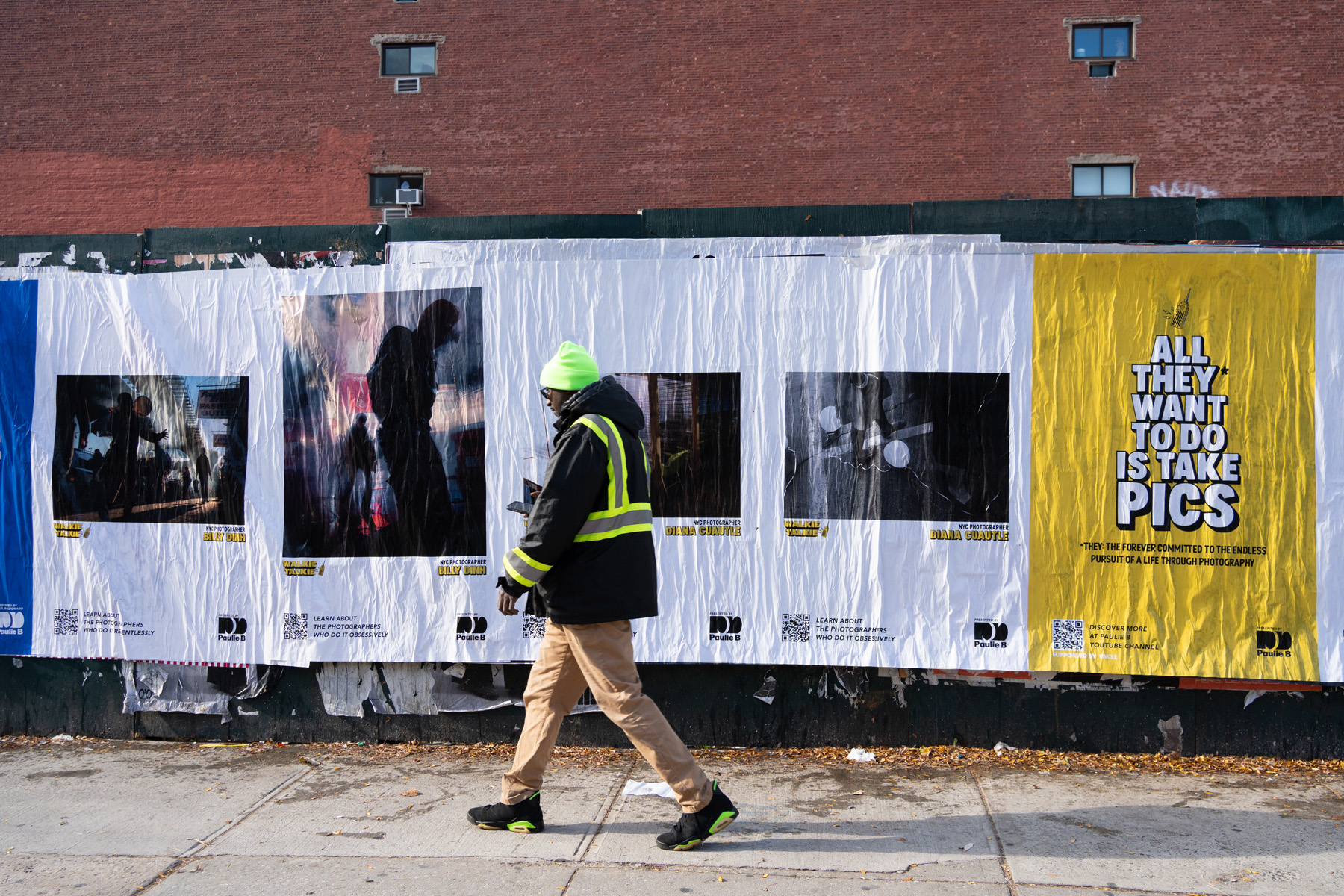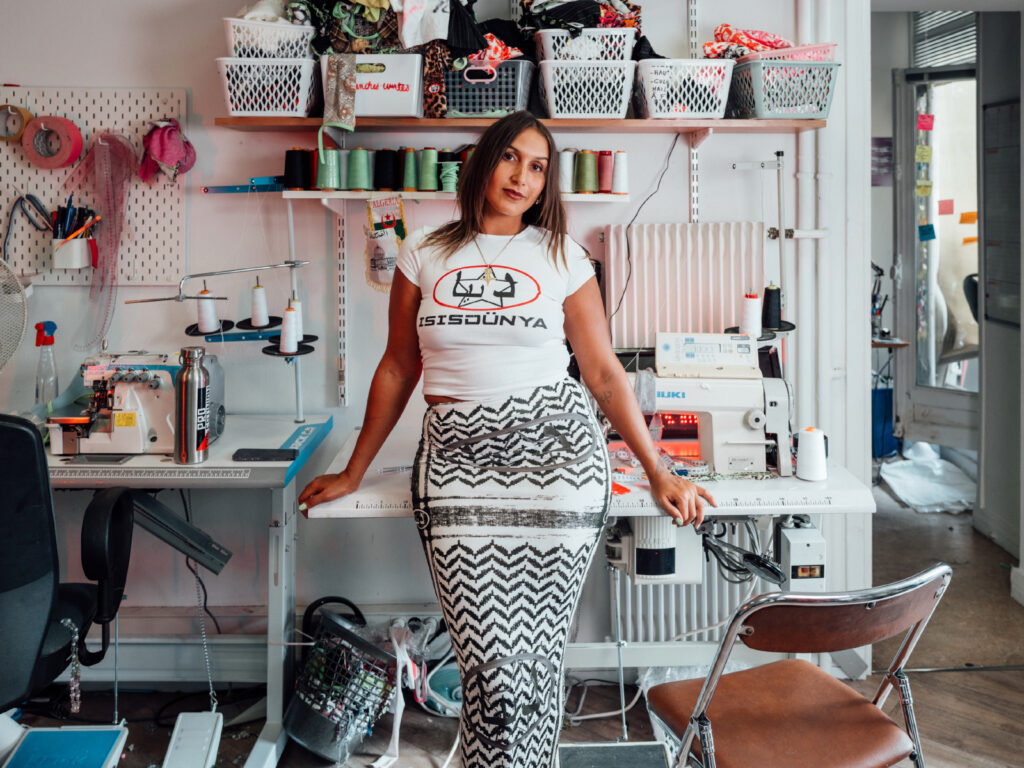
ISIS DÜNYA is not a trend.
The Paris-based fashion label is rooted in community, identity, and defiance against mainstream fast-fashion brands. This is not something you rock for a season, this is something you tie your flag to. And DÜNYA’s flag is upcycled keffiyeh featuring Arabic lettering.
Everything item of clothing you’ll find for sale at Isis Dünya’s website has been handmade, from the leopard print hijabs worn by models next to busy Parisian streets, to the KHALID polka-dot swimsuits worn atop a Ducati motorcycle. The independent designer behind the brand that’s resonating with first, second and third-generation immigrants, LGBTQ+ communities, upcoming DJs, independent musicians and more, admits that it’s a ‘constant challenge’ to balance sustainability and creativity – especially when you’re up against huge corporate brands.
However, as her latest campaign is about to hit the website and the streets of her hometown, she seems as upbeat and resilient as the message that her vibrant brand sends out. Having worked with giants like adidas and Nike, and uniquely community-led names like Red Star and Palestina FC, Isis’ work has spanned culturally rich yet remarkably candid lookbooks, and creative workshops that seek to help and inspire the next generation of marginalised designers and artists break through.
As the latest campaign prepares to go live, not only on the brand’s website but also in the streets of Paris, ISIS DÜNYA maintains an upbeat and resilient energy—one that echoes the defiant tone of her collections. The UNCLE x ISIS DÜNYA collaboration amplifies this message, with the iconic keffiyeh at the centre of the designs. For Isis, it’s not just about incorporating a traditional fabric into her designs; it’s about amplifying the political weight the fabric holds. The keffiyeh, she says, ‘is often appropriated in the fashion world without much understanding of its cultural significance. It represents the struggles of an oppressed people.’
The reimagined keffiyeh print in pink, as seen in the campaign visuals, brings an additional layer of flair, and gives the message that fashion itself is resistance. A mix of bikinis, jackets, pants, and two-piece sets, traditional symbols of resistance blend with modern streetwear and playful silhouettes that you’re bound to see not just in the flyposting campaign, but also sported by DÜNYA’s like-minded customers across the world.
Her designs are as much about cultural storytelling as they are about fashion—whether it’s using fabrics steeped in history or simply showcasing the diverse faces and bodies of her models, she challenges the narrow boxes that the fashion industry often tries to place people in. She celebrates not only her own culture but that of modern-day Paris, where she says: ‘We all grow up together.’
Not for the first time, ISIS DÜNYA is taking her message from the screens of social media and into the streets. As she sees it, fashion isn’t just about what people wear; it’s a tool for activism, a way to start conversations about the issues that matter most, from identity and representation to sustainability and resistance.
In the following interview, we delve deeper into Isis’ journey, her creative process, and the significance of her latest collection—unpacking how DÜNYA is reshaping the narrative both within and beyond the world of fashion trends.
FIRST OF ALL, CAN YOU INTRODUCE YOURSELF IN YOUR OWN WORDS?
I’m 29 years old. I’m the founder of ISIS DÜNYA, a fashion brand focused on diversity, sustainability, and community. I started this brand because, as an Algerian and Turkish woman, I really missed seeing representation in fashion when I was younger. The aim is to create a platform for everyone, but also specifically for minorities like the LGBTQ+ community and People of Colour, and to fight against capitalism and these massive corporate brands.
WERE THERE ANY KEY MOMENTS GROWING UP THAT SHAPED THE DIRECTION THAT YOU’VE GONE DOWN?
Since I was young, I was interested in fashion—not just the trends or the runway stuff, but how people perceive you based on what you wear. I grew up in a middle-class family, and for me, clothes were a way to escape my environment. My grandmother came to France during the Algerian War and became a journalist for a major magazine, but she started with nothing. Clothing played a big role in her ability to navigate this new world, and that really stayed with me. Clothes were a way for me to express myself and challenge stereotypes, whether I was in sportswear or something more elegant.
YOU’VE SPOKEN ABOUT HOW THE FASHION MARKET CAN BE DOMINATED BY FAST FASHION BRANDS. WHAT CHALLENGES DO YOU FACE AS SOMEONE WHO IS ANTI-FAST FASHION?
It’s a constant challenge. Being a sustainable brand costs a lot in terms of logistics and creativity. Every day is a fight to stay true to my values, and the bigger the brand gets, the more complicated it becomes. I mostly create unique pieces, and while that’s what I love, it’s hard to scale that up internationally. I’ve started to produce small series—maybe 10 or 20 pieces—but it’s not easy to grow while maintaining sustainability. I face a lot of resistance from retailers because they’re scared of my approach. They prefer big, trendy brands with mass production, but I think it’s my job to help change that mindset.
CAN YOU WALK US THROUGH YOUR CREATIVE PROCESS WHEN DESIGNING A NEW PIECE?
My process is very instinctive. I don’t work like other designers where they sketch something and then start production. I start with the materials. I go to my suppliers, gather different fabrics, and from there, I plan what I can create. Sometimes I’ll have 10 meters of one fabric, and I’ll design something based on that. I also make mood boards, looking at what worked in the last season and how to evolve from there. Once I’ve got the pieces, I’ll either sell them online or at pop-ups.
Another key part of my process is custom work, where clients come to my atelier, and we have a conversation about what they need. I love being able to make clothing for people that they have played a part in the creative process – perhaps by telling me what they are most comfortable wearing or even what they are not comfortable wearing. It’s a very personal journey, and that’s what I love most.
YOUR CLOTHING INTEGRATES ELEMENTS OF YOUR OWN CULTURAL HERITAGE. COULD YOU EXPLAIN HOW YOUR BACKGROUND INFLUENCES YOUR DESIGNS?
My designs are inspired by a mix of influences. Of course, my Algerian and Turkish heritage plays a role, but I don’t want to limit myself to just that. I work with a lot of non-Western materials and techniques from places like Sub-Saharan Africa, India, and Latin America. I didn’t want to only focus on one cultural identity because that feels exclusionary to me. Paris, where I grew up, is so diverse, and my friends come from all over— my two best friends I have grown up with are from Vietnam and Mali, for example. That’s reflected in my work. It’s about celebrating global heritages, not just one.
YOUR INSTAGRAM HAS A CANDID, UNPLANNED FEEL TO IT. LOTS OF YOUR CUSTOMERS AND FRIENDS FEATURE ON THE FEED, WEARING YOUR CLOTHING OUT AND ABOUT. IS THAT SOMETHING INTENTIONAL THAT YOU’VE DREAMT UP IN A MARKETING PLAN, OR DOES IT JUST HAPPEN ORGANICALLY?
It’s definitely organic. I’m the only one managing the creative direction for my Instagram. I do everything myself—the marketing, the photos, even the sewing. Now I have some help with assistants, but most of the content you see is spontaneous. I’ll post a picture if it feels right at the moment. It’s very instinctive.
AND AS AN INDEPENDENT BRAND, HOW VALUABLE HAS THE IMPACT OF SOCIAL MEDIA BEEN FOR YOU?
Instagram is a powerful tool for communication, especially for people like me who aren’t necessarily represented in mainstream fashion. When I do workshops in fashion schools, especially in more working-class areas, I see the impact my work has on younger brown girls. They can look at me and feel seen, knowing that they can exist in this space without conforming to the stereotypes.
There’s this French term, beurette, which was often used in the ’90s to describe fashionable Arab women in a very reductive way—think Kim Kardashian, with everything always perfect, glamorous, and heavily curated. But I grew up not really fitting into that image, nor did I want to. My style and my reality are different from what’s typically expected. I’m an Arab woman living in Paris, hanging out with my friends, going to techno parties, just living my life. That’s what I try to reflect on my Instagram: authenticity. It’s not curated for perfection; it’s just me and what I experience every day.
WHAT HAS BEEN THE HIGHLIGHT OF YOUR CAREER SO FAR?
One of the biggest highlights for me is going into workshops in popular areas and providing representation for young girls. When I enter a room, I can see that they feel represented by me—a brown girl working in fashion—and that gives them hope. It’s not just about being a designer, it’s about showing them that they can be whatever they want to be. That’s something I really cherish.
I feel a responsibility to provide representation for the younger generation, especially for girls of Arab heritage. It’s not about creating a false image; it’s about showing the many ways you can exist as an Arab woman, without needing to fit into any one category.
WHAT ARE YOUR PLANS FOR THE COLLABORATION WITH UNCLE? WHAT WILL YOU BE USING THE FLYPOSTING CAMPAIGN TO PROMOTE?
The campaign will be the launch of my new collection. The collection is centered around traditional fabrics, specifically the keffiyeh, which is a symbol of resistance in Palestinian culture. For me, fashion is deeply political, and I want this collection to reflect that.
This collection is important because it draws attention to the various cultural and historical narratives that are often overlooked or commodified in mainstream fashion. The keffiyeh isn’t just a piece of cloth; it carries weight and meaning. It’s a symbol of Palestinian resistance, but it has also been appropriated by many in the West without fully understanding its significance. In this collection, I want to bring back that meaning, to remind people of its origins and what it stands for.
I want this campaign with UNCLE to promote not only my collection but also the message that fashion can be a tool for activism. The flyposting campaign is a perfect fit for this, especially in a city like Paris, where street culture and art are so ingrained in the fabric of the city. It’s not just about selling clothes; it’s about starting conversations. I hope that when people see these posters, they’ll stop, think, and maybe even dig deeper into the story behind the collection.
HOW DOES IT FEEL TO HAVE YOUR WORK SHARED IN PUBLIC SPACES AS OPPOSED TO JUST ONLINE?
First of all, I’m grateful to not have to put the posters up myself. I’ve done it by myself before, putting up posters on the streets of Paris at night. It’s not as glamorous as it sounds—it’s actually a real fight! I remember one of the first times I tried, I went out at 5 a.m., putting up posters all around the city center, only to come back a few hours later and find that most of them had already been taken down. It didn’t even last until the next day! It was frustrating but also kind of funny. My friends were laughing at how I’d put so much effort into it, only to see it all disappear so quickly.
So, to be honest, it feels amazing to finally have a team behind me, doing this properly with UNCLE, and knowing that my work will stay up there longer. It’s a completely different experience to see your art in the real world, not just on a screen.
WE’RE EXCITED TO SEE IT ON THE STREETS! WHY DO YOU THINK FASHION IS SUCH AN EFFECTIVE TOOL FOR WHAT YOU’RE TRYING TO ACHIEVE?
Because without saying a word, people can see what you stand for based on what you wear.
HAVE YOU GOT ANY LONG-TERM GOALS FOR ISIS DÜNYA AS A BRAND?
Yes, definitely. One of my biggest long-term goals is to create my own workshops, to have a space where I can share my skills and experiences directly with younger generations, particularly in communities that don’t often get access to these kinds of opportunities.
I’ve already done workshops for different brands like Adidas and Nike, and even in prestigious fashion schools in Paris. But, in the future, I’d love to establish my own independent workshops. I want to create an environment where young people, especially those from marginalised backgrounds, can learn and see that there are many different paths in fashion. When I was 16, I was kicked out of a fashion school because they didn’t see me fitting into their narrow idea of what a student should be. I wasn’t interested in the factory-style education they were providing, but I knew I wanted to create, to make something different.
So, through my own workshops, I hope to show young people that they don’t have to conform to anyone else’s expectations, and that there’s space for everyone in fashion, regardless of where they come from.
WHAT IS YOUR FAVOURITE THING ABOUT PARIS?
The diversity. Paris is so rich in different cultures, and that’s what makes it so vibrant. Unlike other cities where communities are more separated, in Paris, we all grow up together. That diversity is a strength, especially when it comes to creativity.
AND FINALLY, WHAT IS YOUR LEAST FAVOURITE THING ABOUT PARIS?
There’s a lot of hypocrisy in the fashion industry here. Sometimes brands will collaborate with me because I’m seen as a symbol of diversity or sustainability, but they don’t really care about those values. They just want to look good. It’s frustrating to be used for “greenwashing” or for brands to jump on trends they don’t genuinely believe in.

